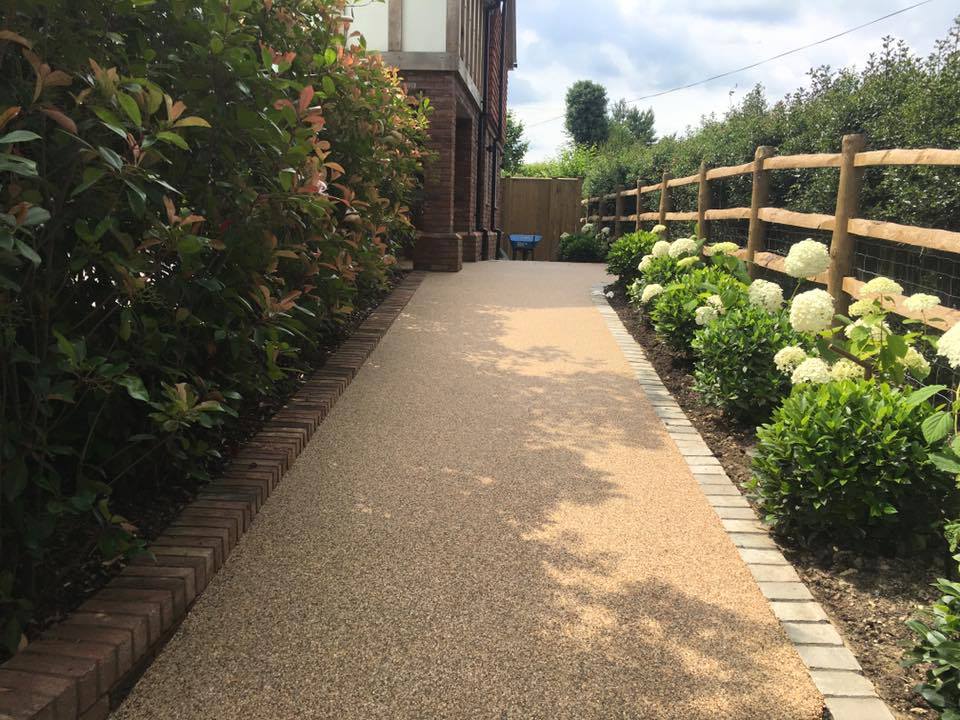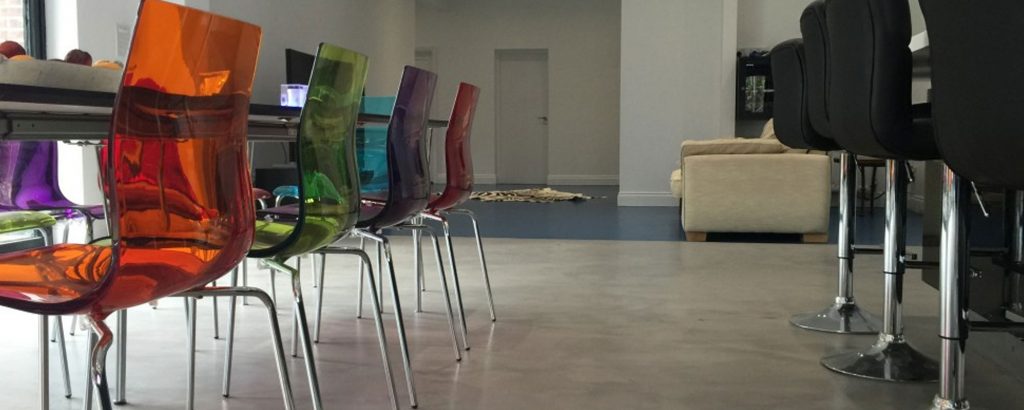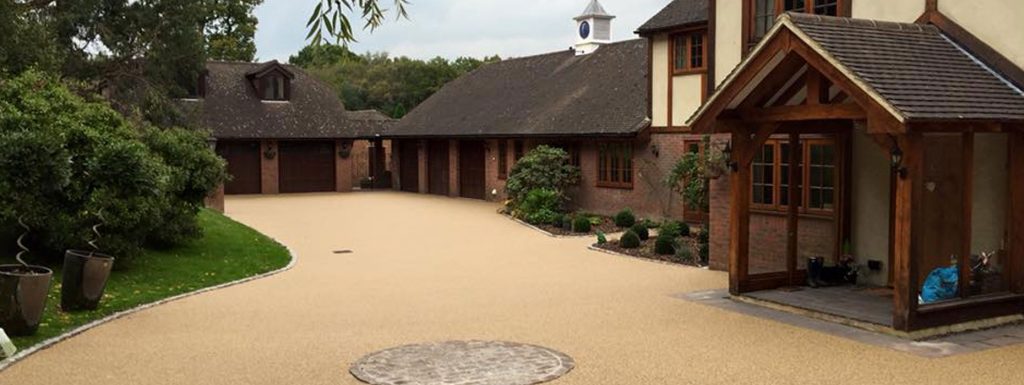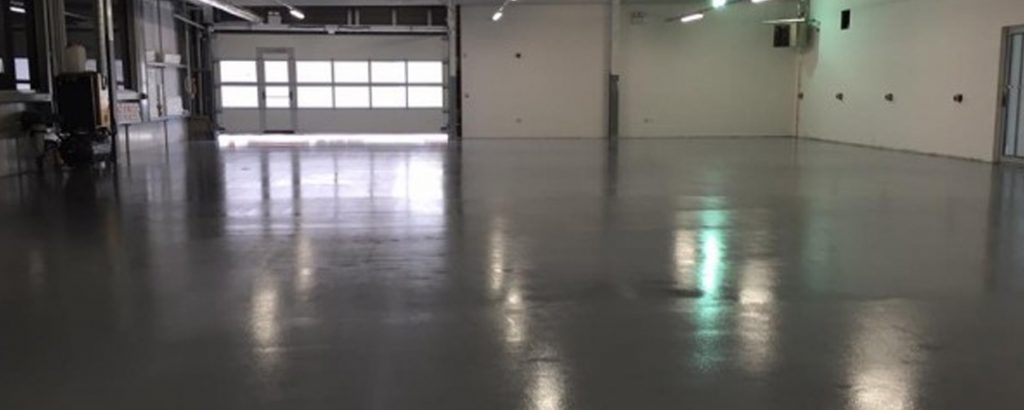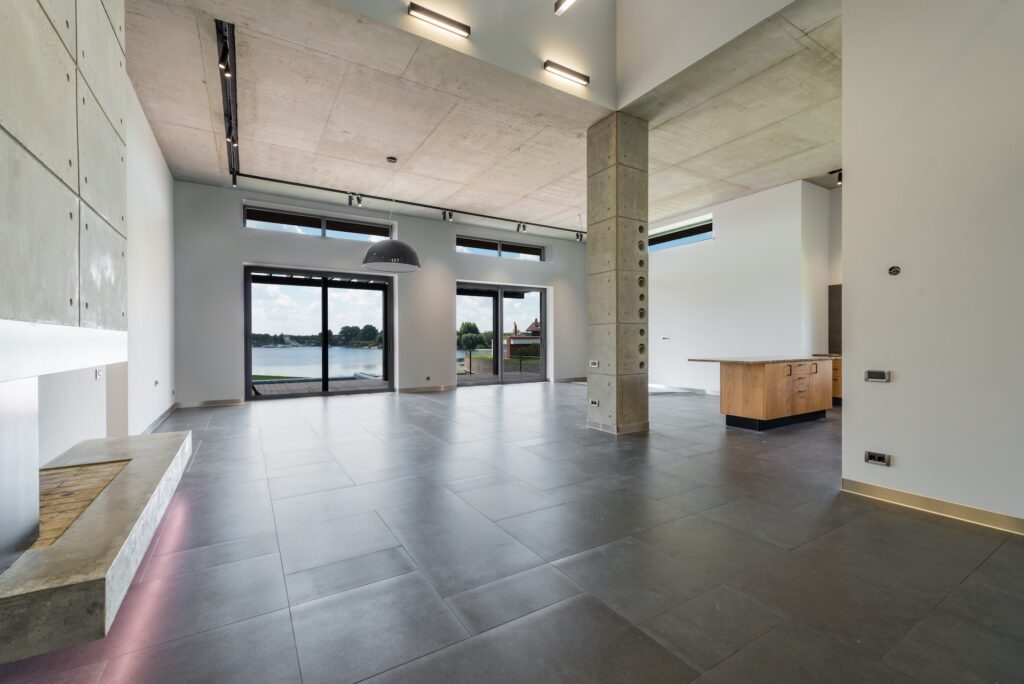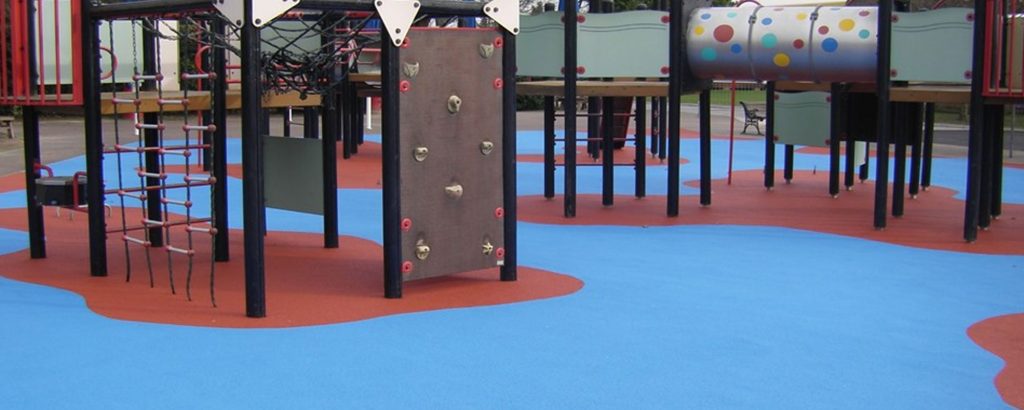Despite being very similar in name, don’t be fooled into thinking that resin bound and resin bonded driveways are also alike in terms of style. Whilst both are considered to be a hugely popular choice for homeowners across the UK, they do have very substantial differences which we will now outline for you below.
Resin bound vs resin bonded explained
What does resin bound mean?
Resin-bound is the faster-growing surface in the UK. The process behind resin bound is that it consists of dried aggregates mixed with resin which creates a durable layer that can be placed onto any pre-existing tarmac or concrete surface. Once it has been trowelled onto a base surface it produces a smooth, level finish with no loose gravel which is ideal when aiming for a sleek and neat style for your driveway.
A beneficial difference between the two materials is that resin bound has a permeable, porous surface meaning water is able to soak through the surface.. Providing that the original surface material which lies beneath the Resin Bound is also porous, this will make the driveway SUDS compliant and can help avoid a host of potential issues such as water pollution and will reduce the risk of flooding.
Looking for a free resin bound driveway?
Fill out our contact form with more details about your driveway we’ll get in touch with a more accurate, no-obligation resin driveway quote.
Another benefit of a permeable surface is that it reduces the heat island effect. This is when certain materials such as; concrete, asphalt and stone absorb the heat making it naturally hotter than the neighbouring area. Permeable surfaces let the soil underneath breathe reducing the hot island effect.
A resin bound surface is also weed resistant which is great if you want a low maintenance surface.
Our last, but by no means least important point, is that resin bound is considered to be very reliable in terms of being weatherproof. It is frost resistant which in turn enables it to be non-slippery during icy conditions and it is also weed resistant. Should the weather become particularly sunny, another key factor is that none of the colours or designs will fade or bleach which can sometimes be a common issue when using other surface materials
Resin bound depths will depend on the size of aggregate and use. A driveway is normally installed at around 16-18mm.. Of course, the thickness is affected by the undulation in the base so you can expect different thicknesses for a driveway in comparison to flooring. There is a large variety of stone sizes and colours, offering a range of finishes to give your home a personal and unique feel.
Common uses of resin bound
As resin bound surfaces are very flexible they are often used for a range of purposes. Most commonly seen are driveways, garden patios, public car parks, cycle routes, and areas within school playgrounds.
Resin bound surfaces
The main difference to consider when looking at resin bonded is that it creates a much more uneven and rough texture when compared to Resin Bound. The idea behind this is to give the effect of a loose gravel driveway but without the usual maintenance this would come with and this is achieved by spreading the surface area with resin and then scattering aggregate onto it.
Some of the aggregates will naturally stick to the resin whilst other parts of it will remain loose. The surface is then swept to remove the loose aggregate leaving the bonded aggregate on the surface. These surfaces are not permeable due to a thick layer of resin being applied before the aggregate and as such it does not have the same environmental benefits as resin bound.
Resin bonded does still have some similar advantages such as being very slip-resistant and weed resistant and it does also fair well in sunny weather conditions as the colours will not fade but unfortunately it is not considered to be frost resistant which means if you know your particular location is prone to having a lot of icy nights, this may not be the best option to consider out of the two.
The lifespan of a Resin Bonded surface can vary depending on a range of factors such as the weather conditions (as discussed above), how often is the surface area going to be used by cars or by footfall, the general preservation of the area and the choice of aggregate which has been used.
Key information to remember
We trust we have described in detail the differences between the two types of resin surfaces, but one very important factor to bear in mind when considering these surface types is to ensure you find a reputable and well-reviewed company to lay the materials for you. All of the fantastic benefits which resin bonded and resin bound can offer will apply so long as they are laid correctly and choosing a professional company is the key to ensuring this.
Lastly, before choosing any type of resin it is always a good idea to evaluate the surface area prior to beginning. Some prime questions to consider are is the surface suitable and is the base stable? Are there any cracks within the original surface you are looking to cover? And is there damage to any parts of it? Once you are certain that these points won’t cause any issue, you can begin to decide upon which Resin to use. Your installer should insist on a site visit to discuss these issues with you.
